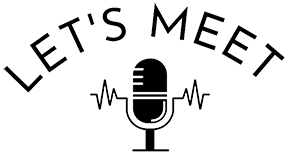The motto of the European Union is ‘united in diversity’
The history of Europe is rich in cultural diversity. Unfortunately, more has to be done by the European Union to increase public knowledge of this fact. This inheritance of diversity is best expressed in the biographies of the greatest artists of Europe: writers, poets, composers, musicians, sculptors, painters, designers, and architects. Many of them were born in areas with a variety of ethnicities. They were influenced by various cultures, traditions, and faiths. Their creations, frequently transcend and synthesize multiple components to produce new values, that express this diversity. As a result of their constant movement across international borders, these characters helped to spread ideas and artistic inspiration. Central and Eastern Europe, distinguished by its cultural, ethnic, and religious diversity, has created exceptionally favorable conditions for the development of personalities and artists who merge different cultures and traditions. They often migrated to Western Europe, where they made their most significant works. Thus, they contributed significantly to the construction of the European cultural community. The local, regional, national, and European levels are often mixed in the biographies of the artists and writers.
Disseminating knowledge about these personalities is extremely important for strengthening the European civic identity and cultural awareness of all EU citizens based on intercultural dialogue. This knowledge should be expanded particularly among young people. Their level and quality of education will have the greatest impact on the shape of the European community in the coming decades.
Within the framework of the project, a mini-series consisting of podcasts dedicated to the greatest personalities of European culture from Central-Eastern Europe are presented. As part of the project, workshops were organized to train and teach students about the shared cultural heritage of the region and about technical ways of presenting the ideas.
The total value of the project amounts to 247,724 euro
Partnership
Partners include Associazione Kinoatelje from Italy and Slovenia, ALDA the European Association for Local Democracy from France, Vsi Dokumedija from Lithuania, Kolegium Europy Wschodniej (the College of Eastern Europe) from Poland as the consortium leader, and Szépírók Társasága Egyesülete from Hungary.

Project at a glance
The idea of the project is to provide teachers in Europe and in particular in Central-Eastern Europe with an educational platform showing the multicultural heritage of the region. Several common themes or personalities were identified with multinational significance. In practice, it means, for example, that a poet could have been born and spent part of his or her life in one country, worked in another, and finished life in yet another. As a result, the same person might be significant in more than one country but his or her personality and achievements are viewed differently. That is why the project shows the same persons from multiple points of view and perspectives not only to provide teachers and students with engaging and in-depth information but also to show common history and patterns of thought and human activity crossing physical and political borders.
General project activities
The main activity of the project includes the production of 44 podcasts divided into some 20 mini-series. Each podcast presents a personality or a theme from a local perspective, but due to the use of the same format, narration, and common language, i.e., English, a uniform view presentation of the same personality or motif from several angles is achieved. The same ideas and approaches are also presented in a documentary movie. All products, or outputs, are presented and made available to interested parties in the form of an educational platform accessible for free over the Internet.
Also, a series of training sessions for students is included in the project. The training conducted online focuses on the use of modern media, and media literacy, but also presents the idea of the project and the common themes of history, arts, and social life throughout the region.
Objective
The project focuses on the development and strengthening of the social and educational value of European cultural heritage through the use of new media. The educational platform is designed to support the development of knowledge and creative skills among students.
Results
As the leading result, the project shall develop knowledge and understanding of the common cultural, social, and historical heritage of the region, as well as awareness of the diversity of points of view and approaches which do not deny and exclude, but rather support and strengthen each other.
Target groups
Teachers and students (high-school and young university students, primarily 18-23 years old).
Two steps from the Baltic to the Adriatic
Two steps from the Baltic to the Adriatic is a documentary film which tells the stories of four individuals who revived the cultural landscape of Lithuania, Poland, Hungary, and in the Slovene-Italian cross-border area at the turn of the nineteenth into the twentieth century. A multicultural, surprising, and tragic world that speaks of modern times, as well.
Year: 2023
Director: Jan Mozetič
Editing: Neli Maraž
Camera operator: Urban Košir, Jan Mozetič
Sound design: Dean Stojčič, Ivan Antić
Production manager: Robert Drekonja
Producer: Mateja Zorn
Production: Kinoatelje
The film Two steps from the Baltic to the Adriatic is part of the project Let’s meet funded by the Erasmus+ programme of the European Union and the Foundation for the Development of the Education System.
Project partners:
Kolegium Europy Wschodniej – College of Eastern Europe, Poland
Kinoatelje, Italy / Slovenia
ALDA – European Association for Local Democracy, Pan European
NARA – Lithuania Space of responsible journalism, Lithuania,
Szépírók Társasága – Society of Hungarian authors, Hungary



